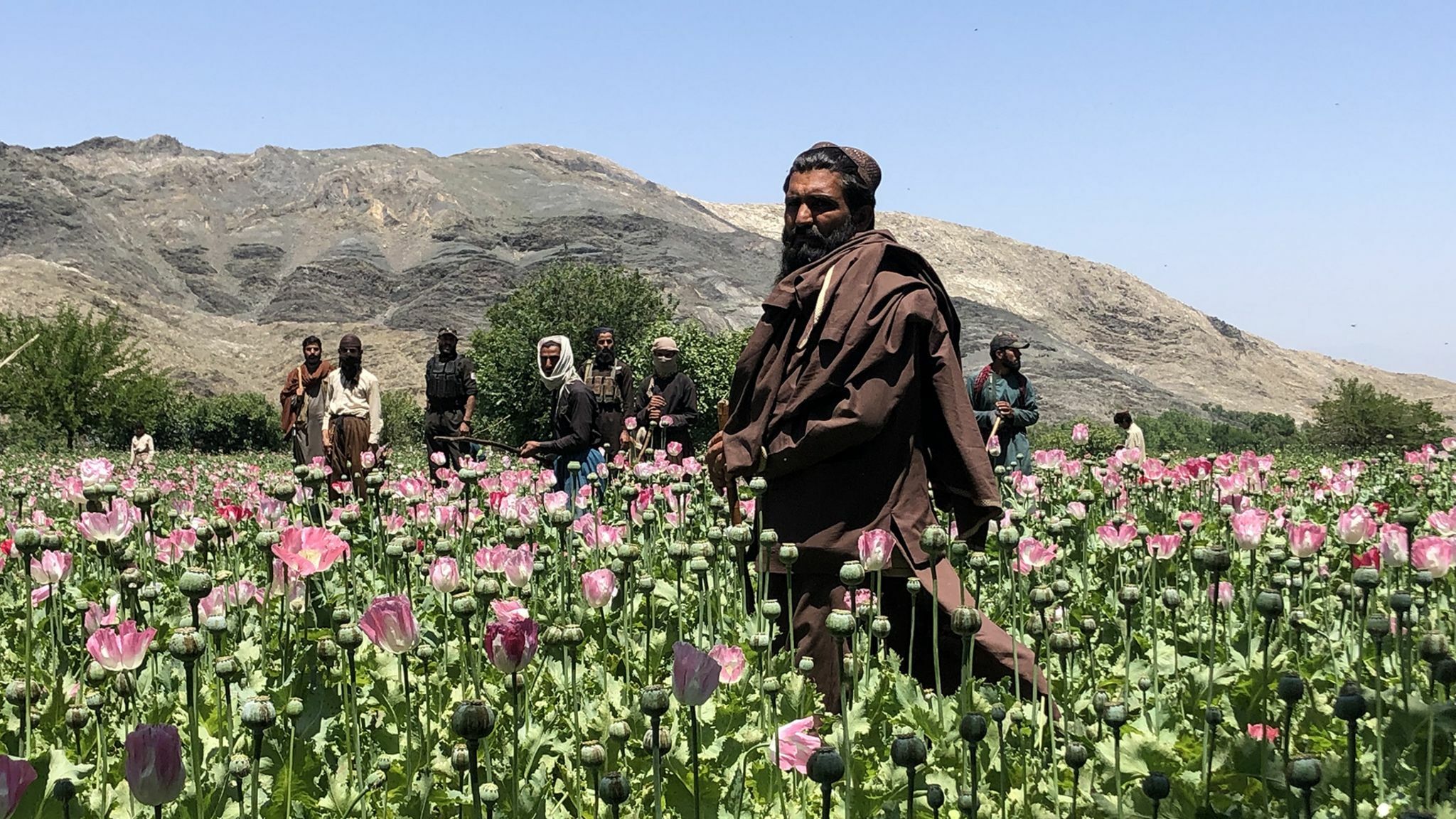Taliban crackdown causes 80% drop in Afghan opium cultivation

Armed with AK-47 assault rifles and large sticks, a Taliban anti-narcotics unit in Afghanistan’s eastern Nangarhar province is on a mission to eradicate poppy farming. In April 2022, Taliban supreme leader Haibatullah Akhundzada issued a decree prohibiting poppy cultivation, with violators facing crop destruction and penalties under Sharia law. The ban was imposed due to the harmful effects of opium and its conflict with the Taliban’s religious beliefs.
Afghanistan previously produced over 80% of the world’s opium, with heroin made from Afghan opium accounting for 95% of the European market. The BBC travelled to Afghanistan and used satellite analysis to investigate the ban’s impact on opium poppy cultivation. The findings indicate a significant reduction in poppy growth in major opium-growing provinces, with some experts estimating an 80% decrease in annual cultivation compared to the previous year.
Farmers are now growing less profitable wheat crops instead of poppies, leading to financial difficulties for many. Despite the ban, opium prices have not yet seen a significant increase, suggesting that stocks remain in the system and the production and trade of heroin continue. It remains uncertain how long the Taliban can maintain their efforts to eradicate opium production in Afghanistan.
Latest Thailand News
Follow The Thaiger on Google News:
























